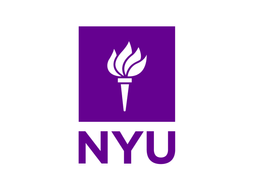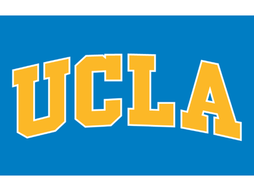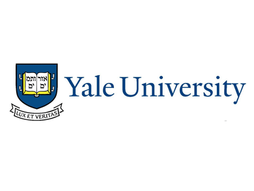UPenn’s Pre-College Program—8 Reasons to Apply
If you want to stand out in college applications, a solid approach is to pursue pre-college programs in addition to your academic and extracurricular efforts. These programs help you gain hands-on experience, allowing you to explore your interests more deeply and develop critical academic skills. Colleges will value your commitment to academic growth beyond the classroom, especially if this growth comes at an Ivy League institution. It demonstrates a dedication to learning, intellectual curiosity, and the ability to thrive in challenging environments—all qualities that admissions officers seek.
Programs like the University of Pennsylvania’s Pre-College Program, the subject of our blog today, offer this valuable opportunity for growth.
What is UPenn's Pre-College Program?
The University of Pennsylvania’s Pre-College Program is a six-week program for high school students that allows you to take undergraduate-level courses for college credit with Penn faculty. This program is ideal for high schoolers who want to experience a rigorous academic environment, explore potential majors, and challenge themselves with university-level coursework at an Ivy League university.
Through this program, you’ll take courses alongside undergraduate students, gaining access to the same resources and facilities. UPenn’s Pre-College Program can help you cultivate a well-rounded, analytical mindset and offers the opportunity to explore whatever fields interest you. By the end of the program, you’ll have a taste of college-level academics and insights into university life, preparing you for the challenges of higher education.
How is UPenn's Pre-College Program structured?
The Pre-College Program at UPenn is hosted in both residential and online formats:
Residential Option: In the residential program, you’ll live in Penn’s supervised dorms and have access to campus facilities such as libraries, dining halls, and recreational spaces. The program is held from July 1 to August 9, 2025. Once accepted, you’ll have the option of choosing one of the following:
One college-credit course unit (1 c.u.)
Biology 101 with lab (1.5 c.u.)
Two college credit courses (2 c.u.)
Biology 101 with lab and a second college credit course (2.5 c.u.)
An average day includes lectures and classes taught by UPenn’s faculty, independent study time, and the chance to participate in academic support sessions. You’ll work alongside talented students from across the globe and be supported by UPenn's current graduates in your lab work and projects.
Online Option: If you prefer or require flexibility, the online format provides a similar curriculum, allowing you to participate from home. Though virtual, this program is interactive, featuring live online lectures, discussion sessions, and assignments. There are two sessions available:
Session I: May 27 – July 2, 2025
Session II: July 3 – August 8, 2025
The sessions are all synchronous, meaning faculty members will engage with you live, ensuring you gain valuable insight and feedback on your work. Similar to the Residential program, you’ll need to choose one of the following options on enrolment:
One college-credit course (1 c.u.)
Two college-credit courses (2 c.u.)
What courses are available?
The curriculum offers various subjects, from humanities and social sciences to STEM. However, it’s important to note that residential and online options have an exclusive list of courses, and you cannot choose from one while participating in the other. Here’s a glimpse at a few options:
Introduction to Experimental Psychology: This course provides an in-depth look at foundational psychological concepts, spanning three main areas: the biological basis of behavior, cognitive processes, and social influences. You’ll delve into neuropsychology, cognitive function, and social psychology, gaining key insights into the mechanisms that drive human behavior.
Introduction to Biology A: This course examines core biological principles, covering topics like the chemistry of life, cell biology, molecular biology, and genetics. The course offers a broad overview of biology by connecting these foundational topics to real-world issues in health, energy, and food. It’s especially suited for students interested in exploring the life sciences.
Calculus, Part I: This course thoroughly explores calculus, from basic principles to more advanced topics. It includes a review of high school calculus and studies of integral applications, transcendental functions, integration methods, infinite series, and differential equations. This course is ideal if you have a solid math background and want to prepare for college-level calculus.
Is it prestigious?
The University of Pennsylvania is an Ivy League institution, so its pre-college program attracts students from across the country and internationally. With a selective admission process, gaining admission to the program indicates that you are serious about academic growth. The program offers opportunities to network with peers as determined as you are and UPenn’s experienced professors, creating connections that could benefit your academic and career journey. The program’s rigorous curriculum and Ivy League setting add weight to your application profile, showcasing your ability to excel in demanding environments. Overall, we would rate this program’s prestige and experience well worth the effort to secure a spot.
Who is eligible, and how do you apply?
To apply for UPenn’s Pre-College Program, you must meet these requirements:
You must currently be in grades 10-11
You need to have a minimum 3.5 high school GPA. Non-native English speakers must also provide TOEFL or IELTS scores (for international applicants)
How does the application process work?
Applying to UPenn’s Pre-College Program involves the following:
Online Application: Submit a completed online form including your personal details, educational history, and responses to specific questions about your academic interests
High School Transcripts: Provide an official copy of your high school transcripts
Letter of Recommendation: A teacher who knows your academic strengths and interest in the program will need to send a recommendation letter directly to UPenn
Essays: You’ll need to complete three 400-word essays addressing these prompts:
Outline your academic and personal goals and how studying at Penn this summer can help you achieve them. You may discuss the specific course options you’re applying to, as well as other aspects of summer study at Penn.
Describe a few of your extracurricular or non-academic activities and how these experiences support your academic and personal development.
For non-native English speakers: Explain your background and experience with English education.
Application Fee: A non-refundable $100 fee is required, and fee waivers are available for eligible applicants
Standardized Test Scores: Though optional, standardized test scores are encouraged
English Proficiency: Non-native English speakers must provide test scores for English proficiency, such as TOEFL, IELTS, SAT, PSAT, ACT, or Duolingo English Test (DET)
Applications are due March 30, 2025, for Pre-College Online Program Session I and April 27, 2025, for all other sessions.
How much does UPenn’s Pre-College Program cost?
The tuition for the program varies according to how many course units you choose to attend.
Residential program
Course units | Program fee | Tuition | General fee | Total cost |
1 | $8,000 | $5,200 | $448 | $13,648 |
1.5 | $8,000 | $7,800 | $448 | $16,248 |
2 | $8,000 | $10,400 | $448 | $18,848 |
2.5 | $8,000 | $13,000 | $448 | $21,448 |
Online program
Course units | Program fee | Tuition | General fee | Total cost |
1 | $2,600 | $5,200 | $448 | $8,248 |
2 | $2,600 | $10,400 | $448 | $13,448 |
Pros and cons of attending the Program
Pros
Academic rigor: The program’s challenging curriculum prepares you for college-level academics and adds weight to your college applications.
Networking opportunities: The program connects you with Ivy League faculty, current graduates and undergraduates, and other motivated high school students, creating a valuable network.
College credits: Earning college credits for completed courses gives you a headstart on your college education and potentially saves you time and money in the future.
Exposure to college life: If you choose the residential option, living on campus offers a glimpse into college life.
Cons
Competitive admissions: The program is selective, so gaining admission can be challenging.
Intensive workload: Expect a rigorous schedule that involves balancing classes, assignments, and study time, which can be demanding on your time and effort.
High attendance costs: The program is extremely costly, especially the residential option, which may be a barrier for some students. Financial aid is not available.
Is it legit?
UPenn’s Pre-College Program is a solid option for highly motivated high schoolers who want to experience college-level academics. With its rigorous curriculum, exposure to top-tier faculty, and the chance to earn college credits, this program is a good way to build academic skills for the future. By taking advanced classes, you can also strengthen your college applications. The program’s selective nature and structured environment will prepare you for the challenges of college life, while its alumni network offers long-term benefits. However, the program’s high cost and competitive nature mean it’s essential to weigh these factors carefully before applying.
One other option—the Lumiere Research Scholar Program
If you’re interested in pursuing independent research, consider applying to one of the Lumiere Research Scholar Programs, selective online high school programs for students founded with researchers at Harvard and Oxford. Last year, we had over 4,000 students apply for 500 spots in the program! You can find the application form here.
Also check out the Lumiere Research Inclusion Foundation, a non-profit research program for talented, low-income students. Last year, we had 150 students on full need-based financial aid!
Stephen is one of the founders of Lumiere and a Harvard College graduate. He founded Lumiere as a PhD student at Harvard Business School. Lumiere is a selective research program where students work 1-1 with a research mentor to develop an independent research paper.











